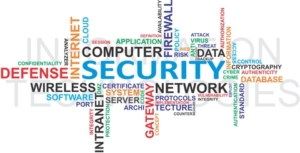You shouldn’t leave any digital trace of yourself after you leave a job. Hopefully, you’ll be leaving voluntarily and thus have the time to first make backups before you delete anything. This may seem easy, but you need to take inventory to make sure you get EVERYTHING.
 Note: make sure that every suggestion below is allowed via a company’s internal policies.
Note: make sure that every suggestion below is allowed via a company’s internal policies.
An article at wired.com gives these recommendations:
- Use a flash drive for smaller amounts of data.
- An alternative is a personal account with Dropbox or Google Drive.
- For more data use an external hard drive.
- Don’t include company information in your backups.
- Forward e-mails you want to save to your personal e-mail.
- Delete all e-mail files, then close down your e-mail account.
- Check USB slots.
Your Computer
- Clear out your personal data if you don’t have authority to wipe the device.
- Delete all your passwords, usernames, etc., that are stored in the computer.
- Browsers like Chrome and Firefox will save passwords and tie them to Google ID or Firefox Sync. Don’t just close out of the browser; log out so that nobody sees your passwords. Do what you can to make the browser forget your passwords.
- In Chrome is “Manage Saved Passwords” in the settings. Use this to delete passwords from any Google account you’ve used. Warning: Hopefully you don’t use the same password and username for workplace Chrome as you do for home, but if you do, deleting this information at workplace Chrome will also clip them at your home computer.
- In Safari, go to “Preferences,” then “Passwords” and delete.
- For Microsoft Edge, click the three dots in the upper right; go to “Settings” and then “View Advanced Settings.” Click “Manage Saved Passwords” and delete.
- If you’re allowed to, wipe the computer.
- The wired.com article recommends KillDisk and DP Wipe.
Your Phone
- Wipe your mobile device that’s provided by the company, assuming you have permission.
- If you don’t have permission, ask the IT team to do this. Just make sure you’re logged out of all applications.
- Shut your company voicemail down—after you delete remaining messages.
Robert Siciliano CEO of IDTheftSecurity.com, personal security and identity theft expert and speaker is the author of 99 Things You Wish You Knew Before Your Identity Was Stolen. See him knock’em dead in this identity theft prevention video.

Comments(3)